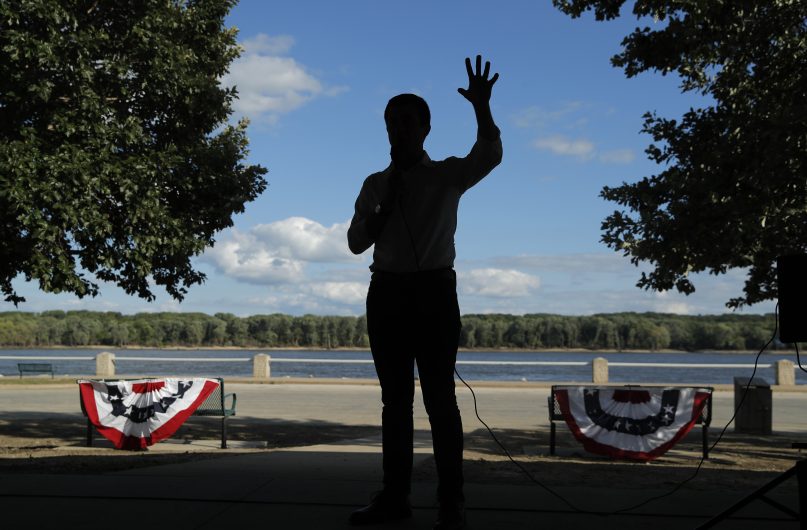In his turn at bat during CNN’s climate town hall last week, Pete Buttigieg, Episcopal layman, stood out from the rest of the lineup by hitting on religious belief. Here, in toto, is what he had to say:
Let’s talk in language that is understood across the heartland about faith. You know, if you believe that God is watching as poison is being belched into the air of creation, and people are being harmed by it, countries are at risk of vanishing in low-lying areas, what do you suppose God thinks of that? I bet he thinks it’s messed up. And you don’t have to be religious to see the moral dimensions of this, because, frankly, every religious and non-religious moral tradition tells us that we have some responsibility of stewardship, some responsibility for taking care of what’s around us, not to mention taking care of our neighbor. And eventually it gets to the point where this is less and less about the planet as an abstract thing and more and more about specific people suffering specific harm because of what we’re doing right now. At least one way of talking about this is that it’s a kind of sin.
As religious witness goes, this is pretty darned diffident.
There’s the anthropologist’s report-from-the-heartland preamble. Next comes a conditional “if you believe in God…then here’s what I think God may think.” Then special religious insight is disavowed. And finally the peroration’s denunciation of sin is wrapped in “at least one way” and “a kind of.”
I’m afraid this pallid rhetoric is of a piece with Buttigieg’s signature proposal for dealing with climate change. As he put it:
I know you’re not supposed to use the T word when you’re in politics, but we might as well call this what it is. There is a harm being done, and in the same way that we have taxed cigarettes, we’re going to have to tax carbon. Now, the difference with my plan is that I propose that we rebate all of the revenue we collect right back out to the American people on a progressive basis, so that low- and middle-income Americans are made more than whole.
In other words, he’s bravely going to T-word the fossil fuel industry in such a way as to enable the non-rich to more easily afford gasoline, heating oil, coal-fired electricity, and natural gas. And as for the the rich, well, they can afford to sin against the planet at twice the price.
Which is kind of the problem with making a carbon tax the centerpiece of your climate policy.
It is indeed comparable to sin taxes on cigarettes and alcohol: an economic incentive to stop using the stuff. But when it comes to serious sins, the Bible does not, for example, make it more expensive to kill people or commit adultery. When it comes to doing those things, it says, “Thou shalt not.”
So if you really think that ignoring climate change means allowing millions and millions of people to die, a carbon tax kind of sends the wrong moral message. If you want to stop carbon usage, you issue commandments that stop it.
It’s not that I don’t like Mayor Pete. He’s a gentleman and a scholar, he wants to do the right thing, and he went to my alma mater. But there’s a certain kind of Mainline Protestant approach to life that, for all its desire to deliver the powerful prophetic allocution, doesn’t want to offend, doesn’t want to presume, doesn’t want to play the old hegemonic card.
That’s all well and good in its place. But climate change is not its place.
If you really believe that ignoring climate change is a sin against God and man, then let your language match your belief. And let your public policy match your language.
That’s at least one way of saying that if you’re going to preach it, Mr. Mayor, preach it.






